How the football craze revitalised a city in Guangdong
Wuhua county in Meizhou, Guangdong, has made a name for itself as the "hometown of football", evidenced by developments in the town surrounding the sport. After Meizhou set out on the path of promoting the sport as a calling card for the city, football has been an ever-present part of the people's lives at all levels. Lianhe Zaobao journalist Zeng Shi gives us a deeper look at how football has affected the city.
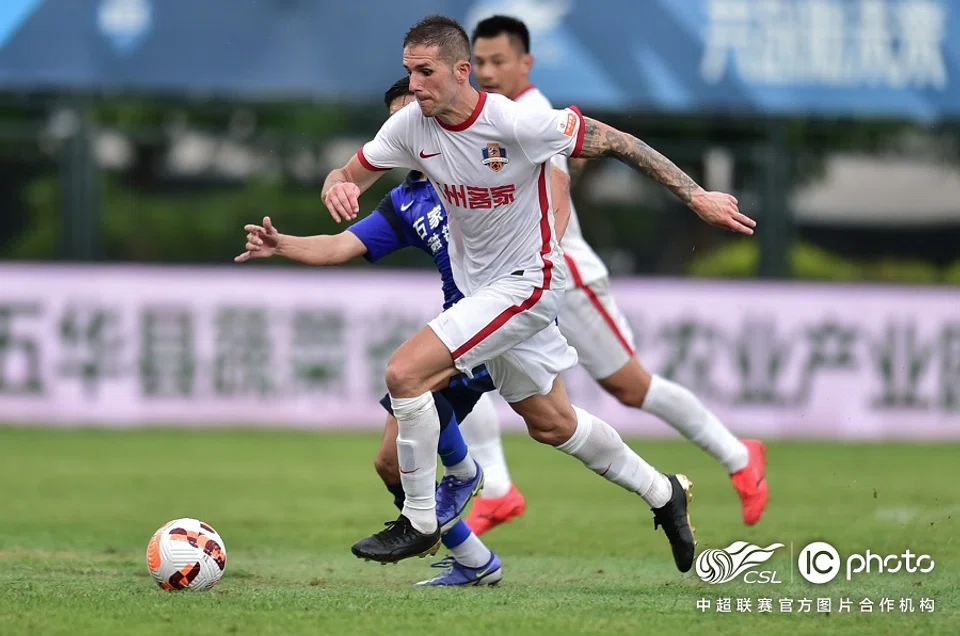
As the 2024 Chinese Football Association Super League (CSL) opened in March, the small Hakka town of Wuhua county in Meizhou, Guangdong, will be hosting many passionate football fans from all over China.
This eastern Guangdong town is also dubbed the "hometown of football", as it produced Lee Wai Tong, billed as the greatest Chinese footballer, in the previous century. In 2021, the Meizhou Hakka football team - established in Wuhua - became the first county-level team to be promoted from the China League One to the CSL.
In the following year, Meizhou Hakka's home stadium in Wuhua became one of the arenas hosting matches of the CSL, the top professional football league in China.
On the evening of 3 March, Meizhou Hakka played their first CSL match for the new season on their home ground at Wuhua Huitang Stadium, against Shanghai Shenhua. The match attracted over 16,000 fans who came in support of their respective teams.
Wang, who drove to the stadium from Dongguan, Guangdong, is a supporter of Shanghai Shenhua. He told Lianhe Zaobao that he made arrangements with a few friends from different cities to come and watch the match. They wanted to show support for their team and also to spend a relaxing weekend at Meizhou.
Indeed, "one football game revitalises the whole city". In a bid to welcome football fans from all over, Wuhua planned a series of activities surrounding the competition schedule, including setting up shuttle services for fans, introducing a football-themed tourist route, holding food sampling activities for yusheng and other Hakka delicacies, and launching a "football+" summer festival.
For the locals of Meizhou, Meizhou Hakka's home matches bring with it a different match viewing experience, and the sense of belonging and pride for local football fans have clearly risen. - Wei Yuanwen, a Wuhua resident
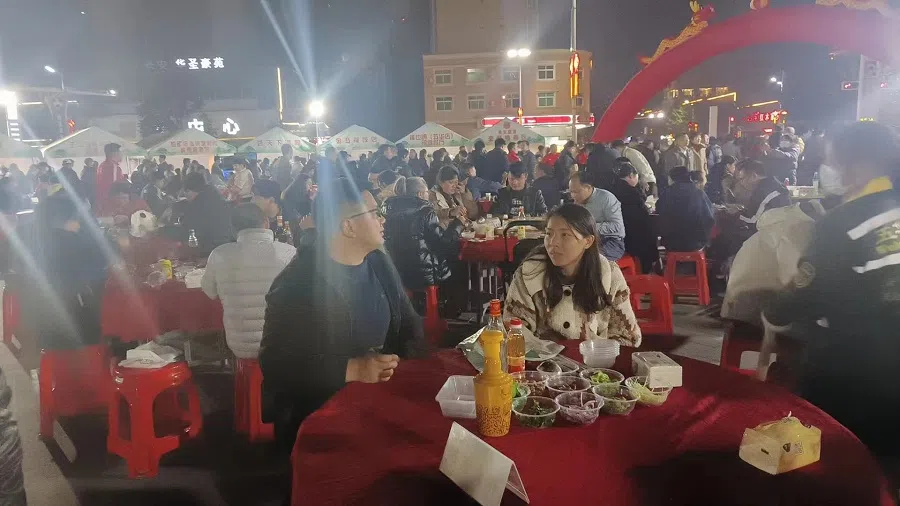
The 2024 CSL season runs from March to November. There are a total of 240 matches across 30 matchdays, and the Meizhou Hakka would play 15 matches at its home ground. This meant that for the small east Guangdong town, the "football match viewing economy" could continue to rise, with waves of tourists visiting throughout the year.
Wei Yuanwen, a 28-year-old Wuhua resident, is one of the volunteers for the CSL in Meizhou district. He stated that amid the hosting of events over the last two years, Wuhua's urban landscape has transformed, and the number of tourists has jumped. For the locals of Meizhou, Meizhou Hakka's home matches bring with it a different match viewing experience, and the sense of belonging and pride for local football fans have clearly risen.
... in terms of football infrastructure, Wuhua has 291 standard football fields, averaging 1.94 football fields per 10,000 people - four times that of the national average.
Boost to Wuhua's cultural tourism
Spurred by the CSL matches, the local cultural tourism market also saw growth. An article on the Meizhou municipal government's official website claimed that according to incomplete statistics, in the first three quarters of 2023, Wuhua's inbound tourists grew 84.6% year-on-year to reach 768,500, amounting to a total tourism revenue of 492 million RMB (US$68.2 million), an increase of 78.9% year-on-year.
Administratively, Wuhua county is under the jurisdiction of Meizhou, the capital of Hakka culture. Situated in northeast Guangdong, the local economic development is relatively lacking. However, in terms of football infrastructure, Wuhua has 291 standard football fields, averaging 1.94 football fields per 10,000 people - four times that of the national average.
In 2009, China's football scene was in an anti-corruption wave and the sport was at a low point. Private capital largely shied away from investing in the sport, and it was in that year that Meizhou proposed a ten-year stimulus plan to promote Meizhou as the "hometown of football". The officials suggested a government-led model supported by businesses along with the society's participation, leveraging on the efforts of the entire city to collectively push for the development of the football industry.
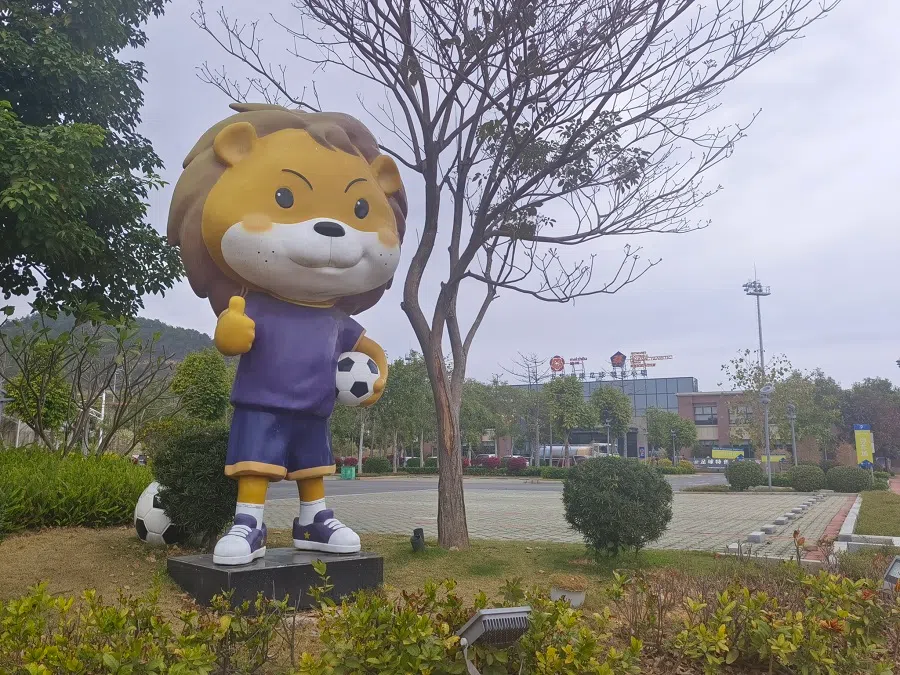
In ten years, football gradually became Meizhou's calling card, seeping into the lives of the locals. From preschool to elementary and middle school, from organisations to businesses, from the community to the villages, virtually every level has its own football team and matches. The locals organise four tiers of football matches - city, county, town and village level - with more than 5,000 matches every year.
Village-level amateur leagues have been popping up in many areas in China for the past few years, with Guizhou's "village super league" last year receiving the most attention for village-level sporting events.
First county to have two Super League teams
Wuhua leads the pack when it comes to football atmosphere. The county set up an organisation in charge of football-related work, allocated funds in its budget for the development of the sport, as well as established a dedicated fund with an allocation of no less than 40 million RMB every year.
Professional football is the hallmark of the rise in the sport, and Wuhua currently has one team in the CSL and another in the Chinese Women's Super League; it is the first county in China to have two Super League teams.
Wuhua county's Culture, Radio, Television, Tourism and Sports Bureau unit chief Chen Huanlin told Lianhe Zaobao that the county currently has around 320 teams, comprising 140 youth football teams and 180 town, village or organisation-affiliated football teams. The county would annually hold a "champions cup", a new year's cup, a village revitalisation cup and a challenger's cup, among a medley of football tournaments, with football activities at the grassroots level extremely common.
Village-level amateur leagues have been popping up in many areas in China for the past few years, with Guizhou's "village super league" last year receiving the most attention for village-level sporting events. Wuhua, which is active in grassroots football activities, also has a football craze unique to its own locals.
Chen pointed out that Hengbei, which is under the jurisdiction of Wuhua, has held the "village revitalisation cup" twice since 2022. Many villagers actively took part in the football matches, with 20 village representative teams last year participating in the six-months-long competition.
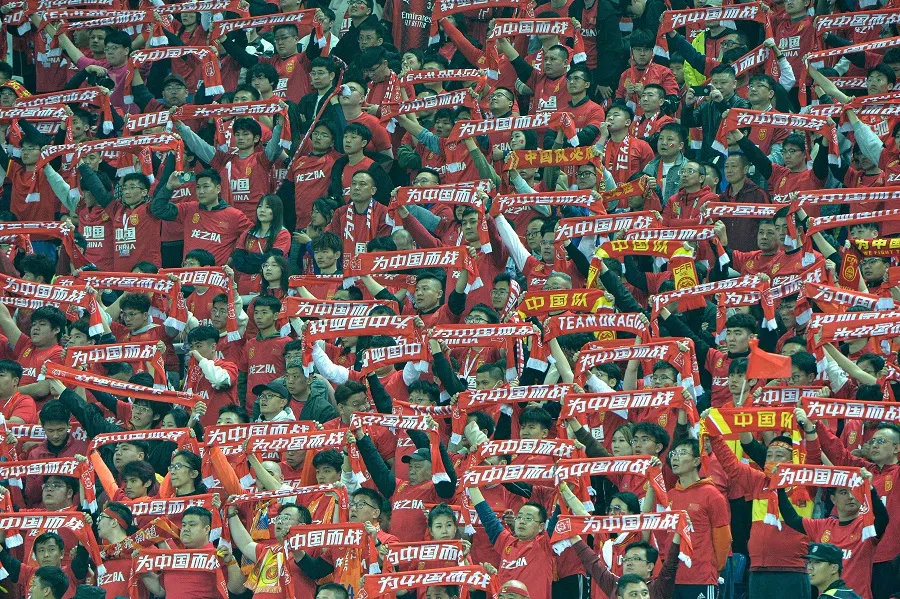
The lively grassroots football matches heightened the people's passion to participate in the sport. Chen said that the football games uplifted cohesion and helped expand revenue channels for the people. Local businesses saw at least a 50% increase in revenue during matches compared with normal times. At the same time there were more channels for the promotion of the village's agricultural products, which in turn helped in the branding of local agricultural products.
With increasingly diverse demands from the people, sports and leisure consumption has boomed. In recent years, the Chinese government introduced relevant policies to spur sports tourism and the construction of the leisure industry for villages, with sports consumption slowly becoming a new area of growth for local governments to stimulate the economy.
... as soon as the youth team trainees are enrolled, their meals, accommodation, education, competition, football equipment and other training costs will all be provided for, costing investors up to 20 million RMB every year. - Wei Xiaojuan, Deputy General Manager, Guangdong Mu Huang Cultural Tourism and Sports Management Company
Nurturing young players
In 2017, China's General Administration of Sports promoted the establishment of national sports and leisure towns, and Wuhua's Hengbei was included among the first batch of 96 areas - and the only one to focus on football - to be developed as such.
The 1.6 billion RMB phase one core area of the football town started operations in 2019, and is capable of hosting football matches and practices, the development of football players, as well as sports and leisure functions, among others. It has already hosted several national and provincial-level football matches.
Wei Xiaojuan, deputy general manager of Guangdong Mu Huang Cultural Tourism and Sports Management Company, which runs the football town, told Lianhe Zaobao that the football town is currently the home ground of the Meizhou Hakka, as well as where the Meizhou Hakka's nine U10 and U19 youth academy teams study and train.
Wei said that these nine youth football teams comprises nearly 200 youth players divided by age and recruited from across the country. To nurture outstanding reserve players, the club hired a professional team from Japan, introduced the Japanese football training system, and conducted targeted training for youth players according to their age groups.
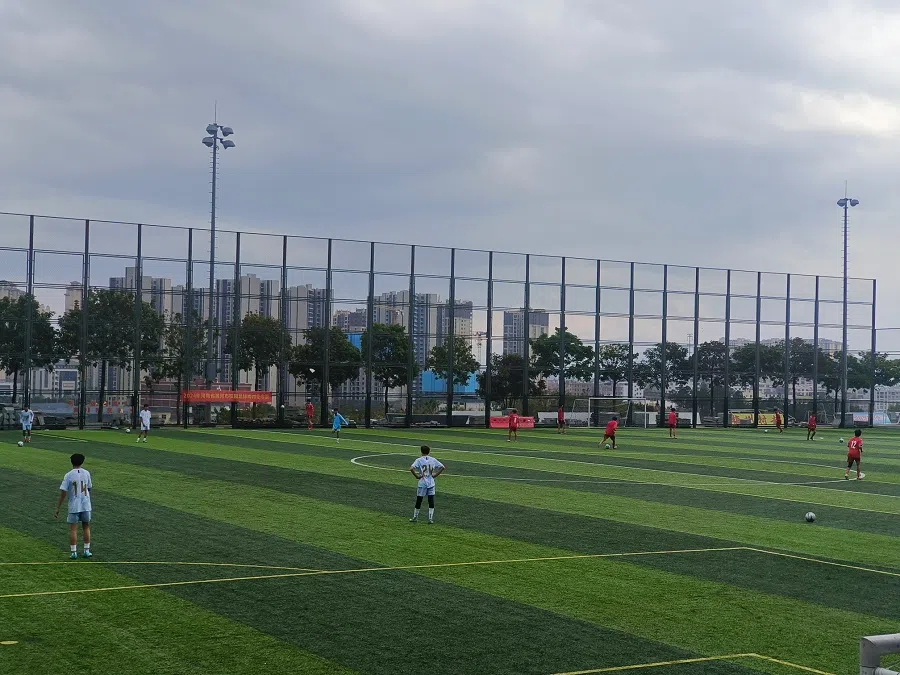
Wei pointed out that as soon as the youth team trainees are enrolled, their meals, accommodation, education, competition, football equipment and other training costs will all be provided for, costing investors up to 20 million RMB every year.
Statistics show that over its four years of operation, Wuhua's Hengbei Football Town has raked in an operating revenue of about 290 million RMB. In 2023 alone, it received over 300,000 athletes, coaches, staff, tour groups and students from across the country.
The continued operation of the football town has become a new growth point for the local economy. Quoting Wuhua Hengbei Football Town party secretary Wei Zhengxi, Nanfang Daily reported that the town boosted the sales of agricultural products in surrounding areas (25 million RMB), promoted the tourism services of surrounding areas (25 million RMB), and led to the direct and indirect employment of over 2,000 people annually.
The football town plans to invest 13.2 billion RMB to construct phase two of the core area with the goal of building an integrated football town covering six major industrial systems of the football industry: football tourism and leisure, football exhibitions, football education and training, sports rehabilitation and medical treatment, football technology and innovation, and football training.
Sports as a force in rural revitalisation
In recent years, many sports towns have mushroomed in various parts of China in the hopes of revitalising the rural areas and driving the local economy through the development of the sports sector. For example, Mashan county in Guangxi has constructed the country's first rock climbing sports town by integrating the region's rock climbing and related industries, while Yushan county in Jiangxi is set to become the "world's first billiard city", driving the development of the billiard industry.
Long dominated by a singular agricultural sector, Wuhua county has in recent years actively developed its sports industry by combining the revitalisation of the football industry with urban development.
... the development of sports towns is a long-term process that must be scientifically planned and developed from a practical perspective while taking into account the region's own economic situation and cultural characteristics. - Professor Chen En, School of Economics, Jinan University
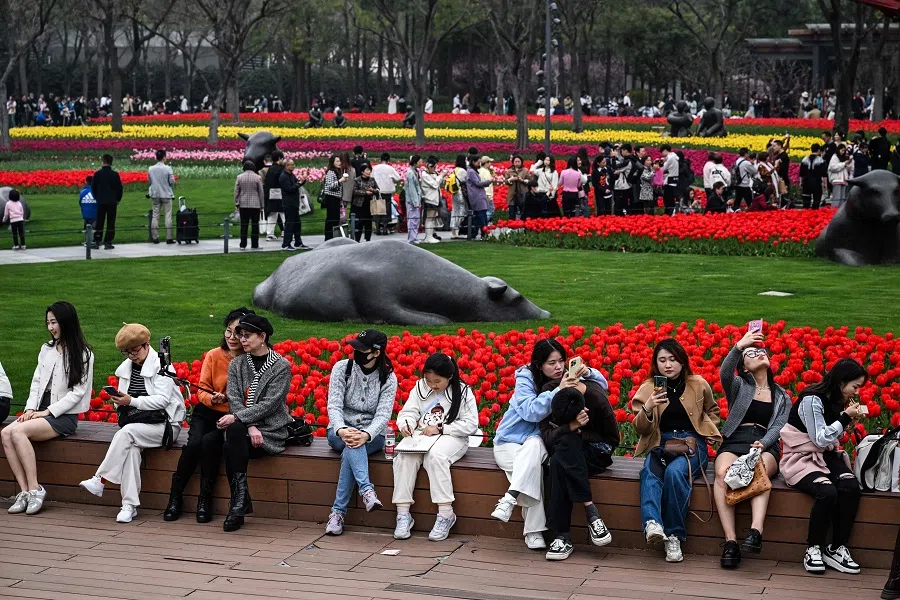
It aims to boost sports and leisure consumption as a football town, and the sector is set to become a driving force for promoting consumption and stabilising growth with the help of the CSL and other tournaments, as well as by integrating and promoting the development of tourism and leisure, sports and creative industries, sports equipment, sports goods manufacturing, and poverty alleviation through agriculture.
Last year, Guangdong's culture and tourism department announced a list of outstanding proposals aimed to boost the region's culture and tourism consumption. Wuhua county's "one football game revitalises the whole city" series of activities was among the 12 proposals that were selected.
Based on the goals listed in the medium- to long-term development plan for football in Meizhou (2020-2050), by 2022, a preliminary construction of the sector's industrial system should be formed, with an output value of 600 million RMB; by 2030, this figure should exceed 1 billion RMB; and by 2050, a comprehensive football industrial system should have been formed, and it should have become an important sector of Meizhou, with an output value of over 4 billion RMB.
... the sports sector is a diverse one; it should be integrated into the local economy and promoted together with the ecotourism, recreation and sports goods manufacturing industries to create upstream-downstream synergies. - Chen
Chen En, a professor at Jinan University's School of Economics, told Lianhe Zaobao that while developing the sports industry helps advance rural revitalisation and boosts the local economy to a certain extent, it must be noted that the development of sports towns is a long-term process that must be scientifically planned and developed from a practical perspective while taking into account the region's own economic situation and cultural characteristics.
He pointed out that some towns and cities that have been sports powerhouses in the past have encountered different challenges in developing sports and leisure towns in recent years, such as unclear positioning, challenges in industrial integration, lack of social influence and limited funds.
Chen, who is a Meizhou native, pointed out that Meizhou football has a rich history and culture, and that the region has a strong football atmosphere, which is conducive to the industrialisation and popularisation of the sports industry. Although the development of the football sector is undoubtedly a distinctive highlight of the local economy, it should be stressed that the sports sector is a diverse one; it should be integrated into the local economy and promoted together with the ecotourism, recreation and sports goods manufacturing industries to create upstream-downstream synergies. This is also a direction that the local government is exploring.
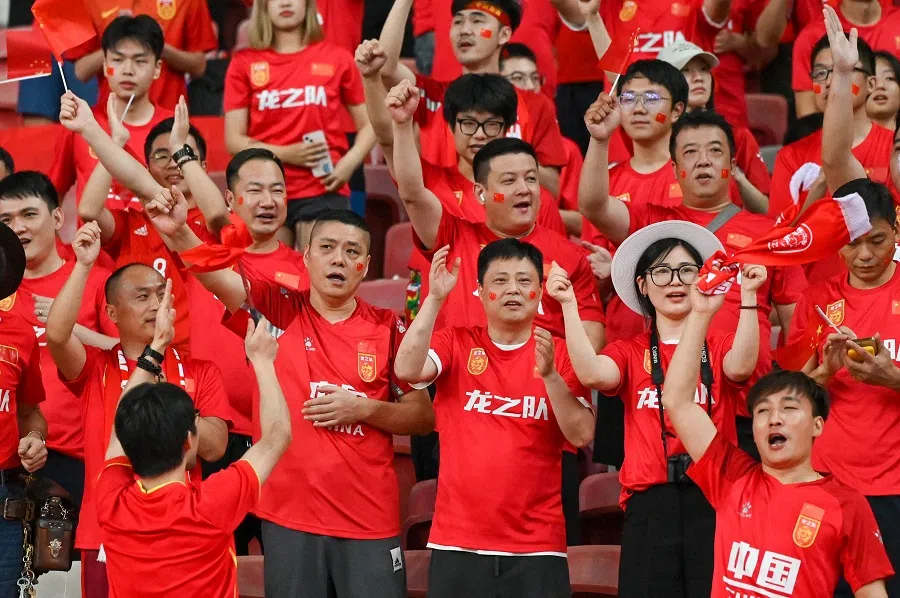
Chen believes that as the reform and development of the football industry reaches a new stage, it will be worth thinking about how to strengthen sports and leisure brands, nurture reserve talents, accelerate the construction of supporting facilities and further boost the vitality of sports consumption.
'King of Asian Football' Lee Wai Tong
Lee Wai Tong, recognised as the "King of Asian Football", hailed from Wuhua, Meizhou. Born in 1905 in Hong Kong, Lee loved football from childhood and returned to his hometown in Wuhua at the age of 6 to attend private school, before going back to Hong Kong to study at age 10. His talent in football soon showed and he started his football career at age 17, having been selected to join Hong Kong's South China football team.
Active in the football scene of the 1920s and 1930s, Lee was known for his exquisite and artful football skills. Back then, there was a saying "If you want to watch opera, you have to watch Mei Lanfang; if you want to watch football, you have to watch Lee Wai Tong". He represented China at the Far Eastern Championship Games five times since 1923 and won the championship each time. He participated in the Olympic Games twice in 1936 and 1948.
It is said that Lee scored 1,260 goals (although some claim it could have been 1,860) over the course of a 25-year playing career. He was known as the "King of Asian Football" and served as the secretary-general of the Asian Football Confederation and the vice-president of FIFA.
In 1976, a German football magazine listed who they considered the world's five greatest players of all time - Lee was named alongside Brazil's Pele, England's Stanley Matthews, Argentina's Alfredo di Stefano and Hungary's Ferenc Puskas.
Lee passed away in Hong Kong at the age of 74 in 1979.
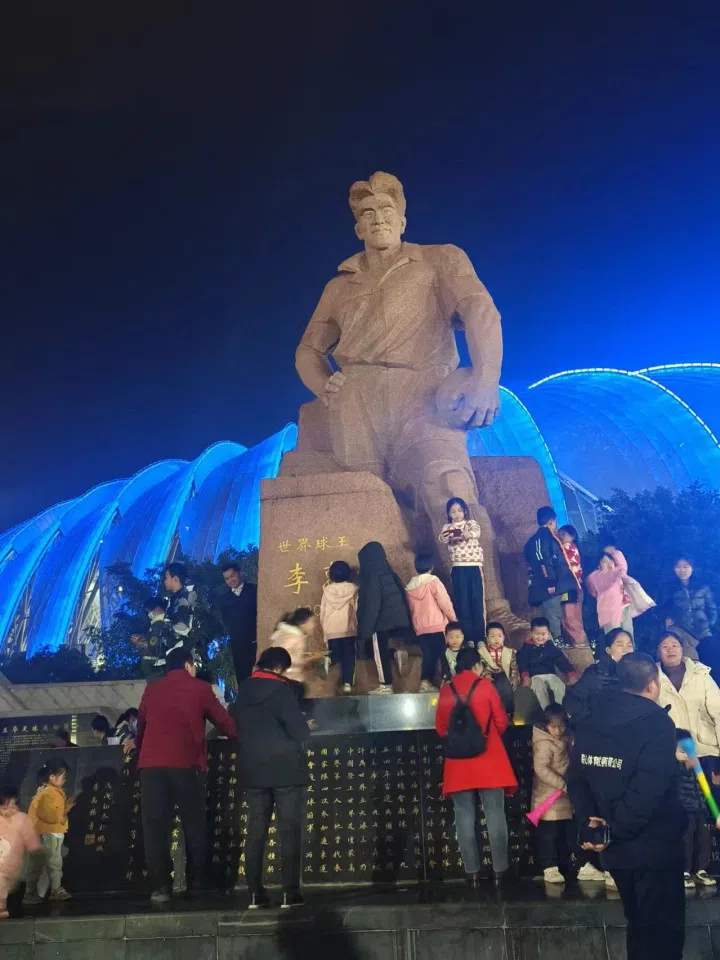
Public information showed that Lee represented the "Republic of China" many times in the earlier years and served as head coach of the "Republic of China" football team in the 1950s. Lee was not mentioned in sports literature and history after the Chinese Communist Party established the People's Republic of China in 1949.
It was not until the early 1990s that authorities began promoting Lee's achievements and contributions to publicise the 1990 Asian Games in Beijing and the history of Chinese participation in international events. It was also then that Wuhua county restored Lee's former residence and built a museum and cultural square in his honour.
This article was first published in Lianhe Zaobao as "一支足球队 激活粤东一座小城".



![[Big read] When the Arctic opens, what happens to Singapore?](https://cassette.sphdigital.com.sg/image/thinkchina/da65edebca34645c711c55e83e9877109b3c53847ebb1305573974651df1d13a)
![[Video] George Yeo: America’s deep pain — and why China won’t colonise](https://cassette.sphdigital.com.sg/image/thinkchina/15083e45d96c12390bdea6af2daf19fd9fcd875aa44a0f92796f34e3dad561cc)
